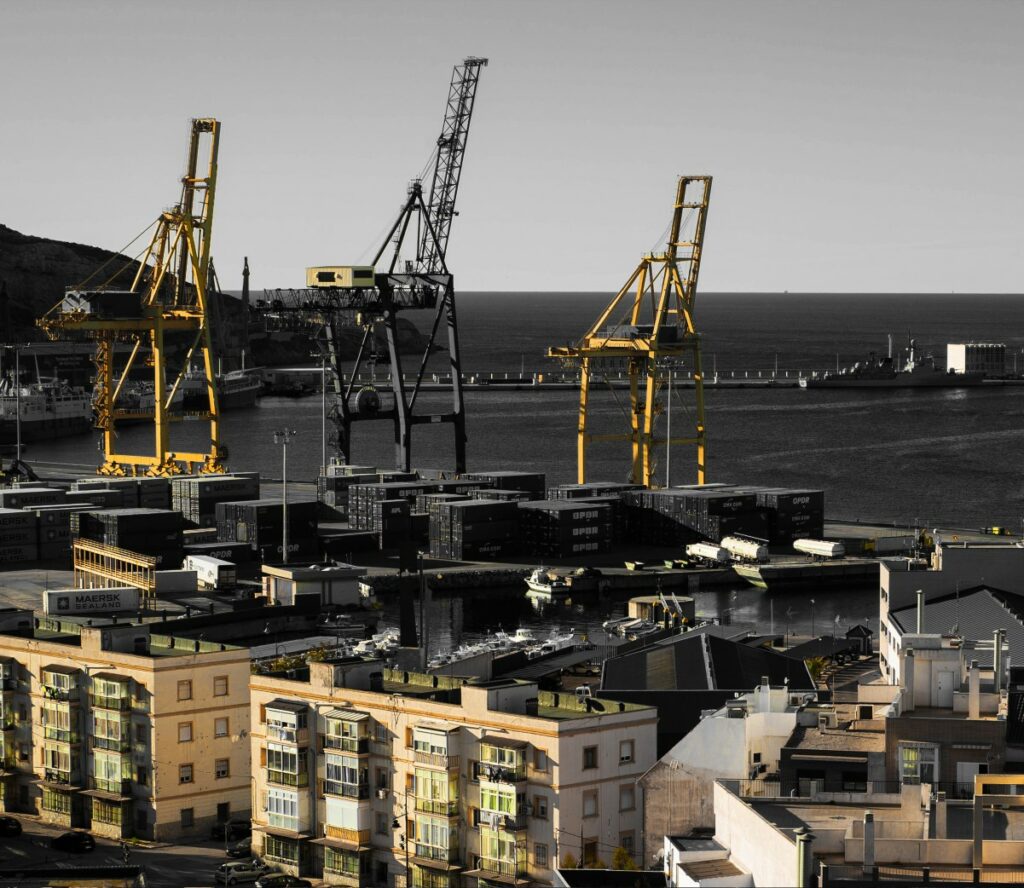Madrid, Spain (Ports Europe) November 13, 2024 – Puertos del Estado has published: “Study of the economic impact of ports of general interest on the entire Spanish economy”.
The economic impact of the port sector, including direct, indirect and induced effects, is estimated at 24,304 million euros and 250,000 jobs, which represents approximately 2.2% of GDP and 1.4% of total employment in the economy.
The direct effect of the port sector alone is in the order of 10,742 million euros and just over 84,000 jobs. For every euro of added value in the port sector, the economy receives an additional 2.3 euros. And for every job in the port sector, three additional jobs are generated. Likewise, the annual turnover of the port sector is estimated at around 16,000 million euros, 0.7% of all Spanish production.
Compared to the last study, which covers 2008, a considerable increase in productivity and a growth in the contribution to the economy that is greater than the growth of the economy can be observed. In other words, ports have become more efficient and are growing faster than the average for other economic sectors: the sector’s added value grew by 15%, compared to 10% globally.
Among the 64 sectors into which the Spanish economy can be broken down, the port sector is ranked 40th in terms of production size, 26th in terms of gross added value, 37th in terms of employment, and in terms of productivity, it is in the top 10.
The magnitude of the economic impact of the port sector increases significantly when considering what, according to the methodological proposal developed, has been called the structural dependence of the port sector. To do this, a scenario of the hypothetical disappearance of ports is simulated, and the replacement and adjustment costs for the rest of the economic sectors are estimated (or, in other words, the benefit that the economy obtains from being able to use the infrastructure and services offered by the port sector, compared to other logistics and/or transport alternatives). In the study carried out, which includes all ports of general interest, the economic impact of the structural dependence of the port sector turns out to be in the order of 50% of the national GDP and total employment and 60% of Spanish production. In a dynamic context in which all companies were forced to readjust their production due to the disappearance of all ports, half of the Spanish economy would be affected.
The study also analysed the economic impact of cruise activity facilitated by ports of general interest on the national economy. The report reveals that, in 2023, this activity contributed directly, indirectly or induced 6.4 billion euros to production, around 3.2 billion to GDP and around 52,000 jobs.
The study developed by Puertos del Estado includes a Methodological Guide and five reports on its application referring to all ports of general interest: economic impact of the port sector, economic impact of the structural dependence of the port sector, economic impact of COVID, economic impact of cruise tourism activity and economic impact of the blue economy in Spain (to which the ports themselves contribute and of which they are also part).
The Guide represents a reference framework for carrying out this type of economic impact report on ports of general interest, as it includes a common methodology supported by prior consensus work with the main actors in the sector, which allows for more reliable comparisons and is made available to Port Authorities, other administrations and the research community and experts. With this, Puertos del Estado continues to advance in the development of the Strategic Framework of the State-Owned Port System, which includes among its objectives the promotion of the preparation of this type of study through homogeneous methodologies that allow the comparability of results between the different ports.
Ports Europe Note:
Spain is the European Union country with the longest coastline and its port system is located on one of the most important maritime routes in the world.
The state-owned port system includes 28 Port Authorities responsible for providing the infrastructure and leading the port offer. The coordination and efficiency control of the Port Authorities is the responsibility of the Public Body Puertos del Estado, which reports to the Ministry of Transport, Mobility and Urban Agenda.
The synergy between Puertos del Estado and the Port Authorities drives the transformation of the Spanish port system towards a more competitive model to respond to the challenges of the future. A shared step with a common route: moving towards safe, innovative and sustainable ports.
More Ports Europe news from Spain
Copyright (C) Ports Europe. All Rights Reserved. 2024.
[email protected]

